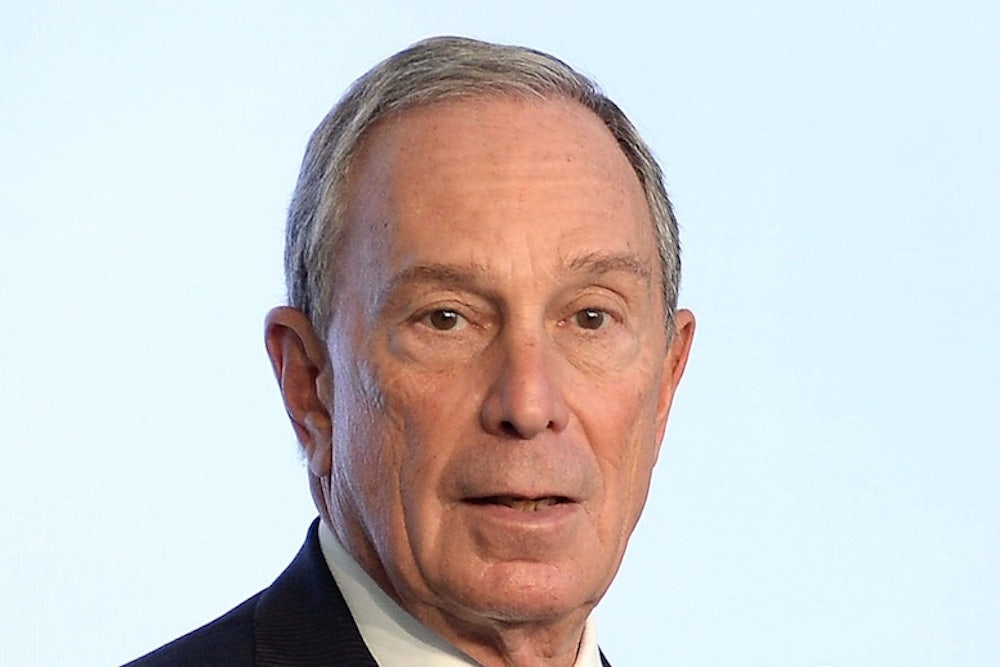What do you get for the man who has everything? A little more of it, apparently. Today, Mayor Michael Bloomberg will receive the Genesis Philanthropy Group’s inaugural Genesis Prize (so next year’s won’t be called the Exodus Prize) and the $1 million that comes with it. He is so honored for his “track record of outstanding public service and his role as one of the world’s greatest philanthropists,” according to the Group, which was founded by three Russian-Jewish billionaires to, in the words of chairman Alex Knaster, “inspire others to act to strengthen and preserve the Jewish community throughout the world.” The group hopes the award will eventually come to be known as the Jewish Nobel Prize, though it's worth noting that one-fifth of Nobel Prize winners have been Jews.
On some level, this feels like a joke without a punch line. Giving Bloomberg $1 million is like giving a … well, the analogies that come to mind are insufficient. Very few people have as much of something as Bloomberg has money. $1 million is about .03 percent of Bloomberg’s estimated $31 billion fortune. Here is the un-funny punch line: Giving Bloomberg $1 million is like giving the average U.S. household $1.56.
Bloomberg, who released a statement expressing his gratitude for the award, has said he will donate the cash to charity. Indeed, Bloomberg has donated much cash to charity. The soon-to-be-ex-mayor is a great philanthropist. Which begs the question of whether the Genesis Philanthropy Group’s $100 million endowment couldn’t be put to wiser use. It also demands that we interrogate what the award says both about the state of the Jewish community and our culture.
A significant percentage of the worldwide Jewish community lives in poverty. In New York City, where the Jewish poverty rate is above 20 percent, poor Jews are disproportionately Russian-speaking—the very people the Genesis Philanthropy Group ostensibly exists to help. Maybe Bloomberg should give the money to the Masbia soup kitchen? Meantime, funding for Jewish non-profits that support the arts is dwindling. Maybe Bloomberg should donate the money to re-open the recently shuttered Six Points Fellowship? Meanwhile, the philanthropic priorities of many of the best-funded Jewish organizations in turn warps the Jewish community, as money tends to do. For example, Peter Beinart has persuasively argued, increased inequality in the Jewish community gives greater voice to the wealthiest, who tend to be more hawkishly pro-Israel than the Jewish-American community at large, in turn distorting the perspective of institutions who are supposed to speak for that community.
As to culture at large, this award represents one more step in the gross exaltation of wealth, and its corollary of holding philanthropy as the highest of virtues. I hope it is clear that those who worry about the effects of Big Philanthropy are not necessarily ingrates, but rather recognize that there is no sufficient substitute for collective action—another word for this is government policy—and that money from the moneyed class is going to reflect that class’s biases when it is disbursed. One of those biases is that there is nothing more valuable than money. Which is how we end up with this joke: An organization wants to honor one of the world’s richest men for giving his money away, and how does it do it? It gives him a little more money.
